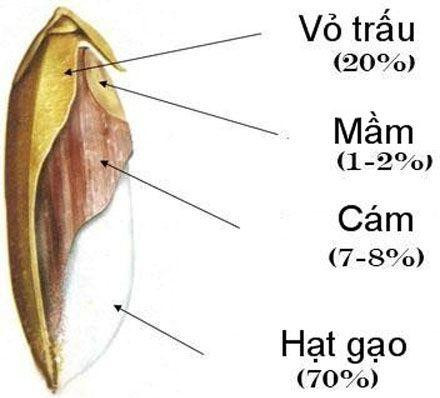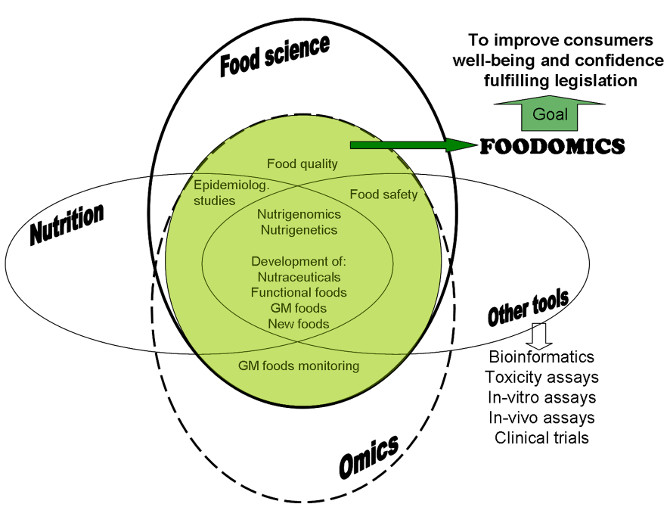Surprise with high nutrient content in rice bran
Accordingly, rice bran has a high nutritional value, is a good source of protein, fat, minerals and micronutrients like vitamin B.
"Traditionally, people only think that rice bran is a cheap source of fiber and also a good source of fat for use as cooking oil (rice bran oil). Because it is only considered as animal feed, rice bran cannot It is used more in diet and health promotion, but now, the high nutritional value of rice bran has made people pay more attention to it in public health, " said co-author rescue, Professor Elizabeth Ryan from Colorado University. "A serving of rice bran (equivalent to 28g according to US Department of Agriculture standards) provides more than half of the daily needs of vitamins such as thiamine, niacin and vitamin B6".
According to Phys, rice bran is the outer part of the grain between the inner seed and the rice husk when not yet milled (see picture below). With all kinds of milled white rice on the market today, rice bran has been removed from intact rice grains during processing and mainly used for animal feed.

Rice grain structure.(Photo: hoathien).
Identifying and measuring different molecules in a food belonging to recent emerging disciplines is metabolomics (also known as "Foodomics"). Foodomics specializes in researching nutrition and food knowledge through the application of advanced omics technologies to improve mental health, physical fitness and confidence for consumers.

New research belongs to Foodomics, an emerging science that helps consumers improve their mental, physical and confidence (Photo: Foodomics Group, CIAL).
A complex biochemical analysis technique in the Foodomics industry is a mass spectrometry that has been used by the team to look at three different types of American rice that were previously used in diet intervention trials. human abstinence. The results showed that rice bran has 453 metabolites, including 65 potential substances for health enhancement and known pharmacology and 16 substances have never been mentioned. Of these, amino acids, vitamins, cofactor account for nearly 50% of the total small molecule content. These substances and secondary metabolites are believed to have nutritional and medical benefits.
Metabolites-metabolites are substances that are formed or necessary for metabolism to produce energy and promote growth in the body. Cofactor is the term for substances needed for enzymes to function in metabolism but not proteins.

Rice bran has a high protein content.(Illustration).
Some of the compounds discovered this time have been shown in previous studies to have good health characteristics like anti-inflammatory, bacteria and high blood pressure.
In addition, people also find rice bran with a high protein content, up to 12-15%, can help solve nutritional deficiencies, a serious health problem in the world today.
"Rice is an essential food source for more than half of the world's population, grown in more than 100 countries. When consumed, rice bran produces more than 400 separate compounds, which can contain many compounds. certain roles in the "teamwork" process of the digestive tract to provide health benefits, no matter how well the way these individual compounds can be used by the human body to digest still limited science, but the rice bran biochemical compound deserves us to continue to explore nutritional treatments and medical food applications from rice bran , " concluded Professor Ryan.
- Sticky rice bran has more antioxidants than blueberries
- Why should rice bran be eaten instead of white rice?
- The United States found high levels of lead in Chinese rice
- White rice and brown rice, which is more nutritious?
- Technology to turn rice husk into ... wood
- Plant nutrient-rich dry rice instead of wet rice
- Discovering new rice varieties with antioxidant capacity
- New rice varieties improve productivity for Asia
- Rice varieties with salinity and high yield
- Too high CO2 levels can cause rice to lose many important nutrients?
- Discovering a new kind of rice gene for high yield
- Successfully growing high quality rice varieties from Japan
 Green tea cleans teeth better than mouthwash?
Green tea cleans teeth better than mouthwash? Death kiss: This is why you should not let anyone kiss your baby's lips
Death kiss: This is why you should not let anyone kiss your baby's lips What is salmonellosis?
What is salmonellosis? Caution should be exercised when using aloe vera through eating and drinking
Caution should be exercised when using aloe vera through eating and drinking